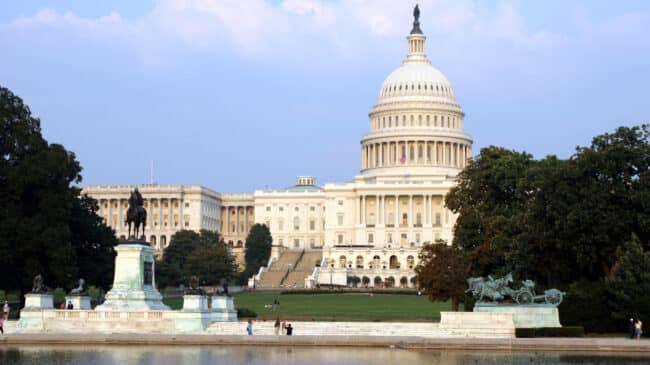Executive Summary
Interstate commerce in marijuana is likely inevitable. Twenty-four states have legalized marijuana for recreational use by adults, and 38 states have legalized its medical use. But these states all ban the import of marijuana products made outside their borders. A consumer in Massachusetts may not legally purchase a product made in California or Oregon, even though those locations offer better growing conditions.
As a result, state marijuana markets are entirely balkanized, preventing the emergence of regional specializations. States with poor growing conditions nevertheless bar consumers from purchasing products that might otherwise be offered at lower cost or higher quality because they were grown elsewhere. Marijuana companies that operate in multiple states must inefficiently allocate their capital to build duplicative production and distribution facilities in every state where they operate. Innovative upstart marijuana companies that produce unique and sought-after products may find that their commercial success is impeded by an inability to access markets outside their home state.
These state bans against interstate commerce violate a legal concept known as the dormant Commerce Clause. The U.S. Constitution reserves to Congress the exclusive jurisdiction to regulate commerce between the states. Because this jurisdiction is exclusive, states cannot erect barriers to interstate trade. These precepts are foundational to the American republic because eliminating state-level protectionism was among the primary motivations for abandoning the Articles of Confederation in favor of the U.S. Constitution, which ushered in a nationwide free-trade zone.
State policymakers may have mistakenly believed that they could shield state-licensed marijuana companies from federal prosecution by permitting only intrastate commerce in marijuana. However, the U.S. Supreme Court has been clear that even purely intrastate commerce in marijuana invokes Congress’s regulatory authority under the Commerce Clause. Although marijuana’s status under the federal Controlled Substances Act makes its possession, manufacture, and distribution illegal, if a state chooses to sanction these activities within its borders, it cannot exclude marijuana products made in other states solely on that basis.
Federal courts have already struck down several state regulations that restricted the freedom of commerce in marijuana across state lines because those regulations violated the dormant Commerce Clause. More of these state-imposed barriers to interstate commerce are likely to be struck down in the future. Although two federal district courts have declined to strike down state restrictions on interstate commerce in highly publicized cases, a close inspection of those rulings reveals that there were confounding factors, and each court recognized the underlying dormant Commerce Clause claims. It appears a matter of time before courts invalidate all state rules barring the import of marijuana products made in other states.
Such a decision could usher in mass confusion. There is currently no regulatory framework to govern interstate shipments of marijuana goods. These products remain criminal at the federal level even if the relevant laws remain largely unenforced. It would be prudent for Congress to proactively establish a regulatory framework for interstate shipments of marijuana products and to remove marijuana from the Controlled Substances Act. Failing that, states should at least start to relax their own unconstitutional bans on interstate commerce and work to foster a coordinated mechanism for facilitating trade in these goods.
Congress has considered several proposals that would remove marijuana from the auspices of the Controlled Substances Act or establish a federal regulatory structure to govern interstate transfers. Federal regulation of the alcoholic beverage industry offers key insights into how a federal regulatory framework might be structured. Like marijuana, alcohol enjoyed a long period of federal legality, followed by a period of federal prohibition and then a period in which states took the lead in the regulation of products and businesses. Federal agencies had to learn how to respond to and work within the regulatory apparatus that had already been erected by the states in order to facilitate orderly commerce. These same agencies should take the lead in regulating interstate commerce for marijuana products and work to minimize technical barriers to trade that result from disparate state approaches to regulation.
Introduction
When California voters legalized marijuana for medical purposes in the fall of 1996, they set in motion a slow-moving freight train in which increasingly more states would enact marijuana laws in direct conflict with federal law. This metaphorical momentum accelerated in the fall of 2012, when voters in Colorado and Washington approved initiatives to legalize marijuana for recreational purposes. As of early 2024, 38 states now authorize the medical use of marijuana while 24 of those states authorize marijuana for recreational use. These changes to state law have all occurred despite marijuana’s strict illegality under the federal Controlled Substances Act.
An interesting and underappreciated aspect of the resulting state-regulated marketplaces is that they also conflict with provisions of the U.S. Constitution that reserve to Congress the exclusive jurisdiction to regulate interstate commerce. State policymakers may believe that their wholly intrastate markets are shielded from Congressional regulatory authority, but the U.S. Supreme Court has been clear that even wholly intrastate commerce in marijuana falls within the congressional ambit to regulate commerce between the states. Meanwhile, every state-regulated marijuana market expressly excludes the import of marijuana products produced beyond state borders. This is a clear violation of a legal concept known as the dormant Commerce Clause.
This paper reviews the legal theory and history of the dormant Commerce Clause as well as recent case law, which largely affirms that existing state barriers to interstate commerce in marijuana are unconstitutional. Essentially, once multiple states had legalized marijuana, they had the obligation to permit an interstate marketplace regardless of the federal illegality of the underlying goods.
The paper examines possible pathways to establishing an interstate marketplace for marijuana.
First, states could voluntarily remove their existing barriers against interstate commerce.
Second, Congress could make its regulatory authority explicit by establishing a system to govern interstate transfers of marijuana inventory. Federal courts could continue to strike down state barriers to interstate commerce, resulting in cross-state trade even if political leaders fail to make changes to the law.
Finally, the paper outlines proposals recently considered in Congress to regulate interstate trade in marijuana goods and makes recommendations based largely on how alcoholic beverages are regulated.
Full Brief: The Case for Interstate Marijuana Commerce Right Now


